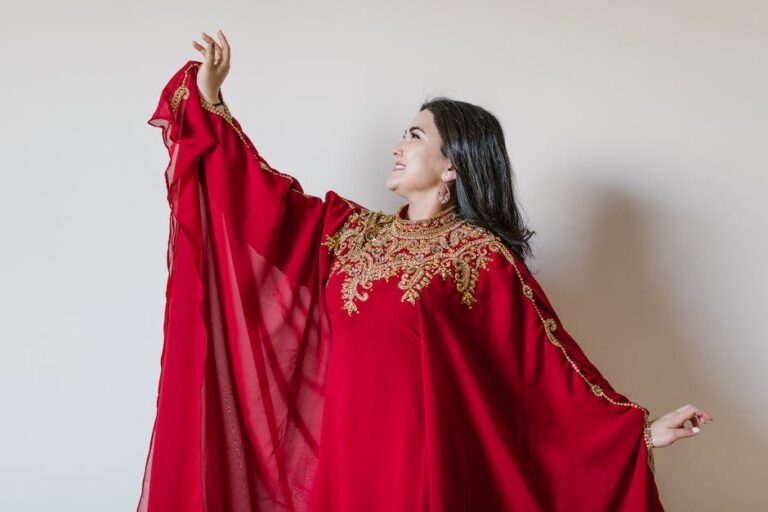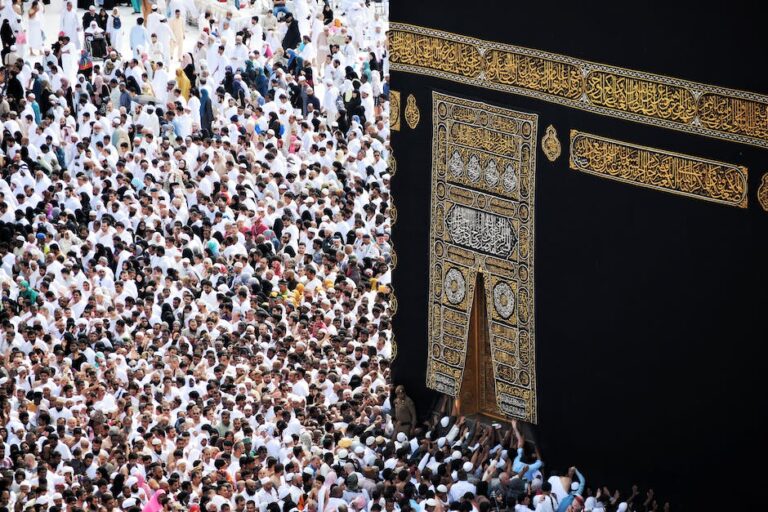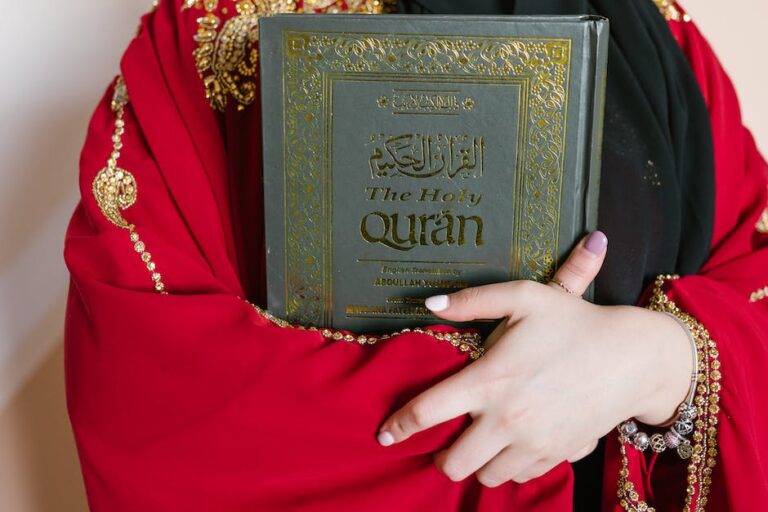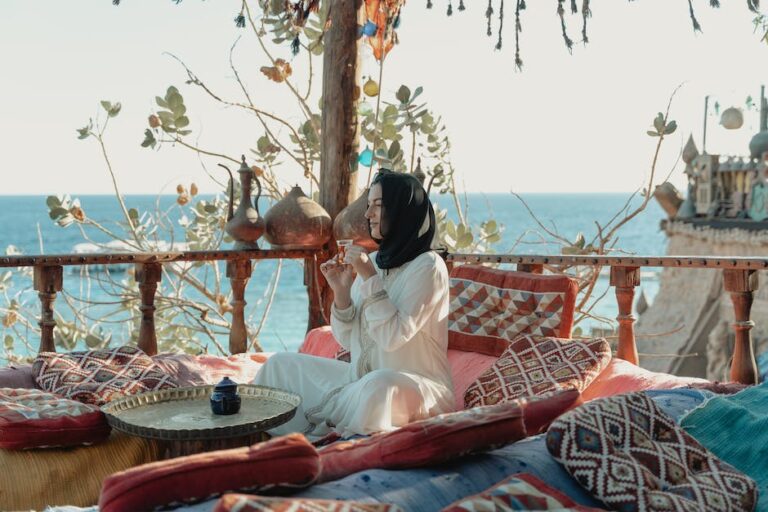The Emergence of Eco-Friendly and Sustainable Islamic Fashion Brands
Eco-friendly and sustainable Islamic fashion is a relatively new concept in the world of fashion, but it’s one that has gained significant popularity within the Muslim community in recent years. This type of fashion aims to incorporate principles of sustainability and environmental responsibility into the design and manufacturing of clothing, while still adhering to the modesty requirements of Islamic dress.
The emergence of eco-friendly and sustainable Islamic fashion has been driven by a growing awareness among Muslims of the importance of protecting the planet and preserving its natural resources. Muslim consumers have become increasingly mindful of the impact of their purchasing decisions on the environment and are seeking out clothing that aligns with their ethical and religious values.
The significance of eco-friendly Muslim fashion in Islam
The principles of sustainability and environmental responsibility are firmly rooted in Islamic teachings. Islam emphasizes the importance of preserving the earth’s natural resources and maintaining a balance between human needs and ecological sustainability. Muslims are encouraged to be stewards of the earth and to avoid wastefulness in all aspects of life, including fashion.
Eco-friendly and sustainable Islamic fashion is thus an extension of these teachings. By choosing clothing made from sustainable materials and produced in an environmentally responsible manner, Muslims can fulfill their religious obligations while also contributing to broader efforts to protect the planet.
Emerging eco-friendly Islamic clothing brands and designers
In recent years, a number of eco-friendly Islamic clothing brands and designers have emerged, offering a range of stylish and sustainable options for Muslim consumers. These brands and designers use materials such as organic cotton, bamboo, and recycled polyester, and incorporate design elements that minimize waste and reduce environmental impact.
Some notable eco-friendly Islamic clothing brands and designers include Elate Muslim, a UK-based brand that uses 100% organic and Fairtrade cotton in its clothing; BAV TAiLOR, a luxury brand that incorporates sustainable fabrics in its designs; and Aab Collection, a modest fashion label that has introduced a range of eco-friendly and sustainable options in recent years. These brands and designers represent a growing movement within the fashion industry towards greater sustainability and environmental responsibility, and offer Muslim consumers the opportunity to make more ethical and responsible choices without sacrificing style or quality.
Innovative materials and techniques used in sustainable Muslim fashion
Eco-friendly and sustainable Islamic fashion relies on the use of innovative materials and production techniques to minimize environmental impact while maintaining the quality and integrity of the clothing. One of the most popular materials used in sustainable Muslim fashion is organic cotton, which is grown without the use of pesticides or synthetic fertilizers, reducing the environmental impact of cotton cultivation. Other sustainable fabrics used in Muslim fashion include bamboo, hemp, and linen.
In addition to the materials used, sustainable Muslim fashion also incorporates innovative production techniques such as zero-waste pattern cutting and upcycling, which reduce textile waste and increase the life cycle of clothing. Zero-waste pattern cutting involves designing garments in a way that ensures no fabric is wasted in the cutting process, while upcycling involves reusing and transforming existing fabrics into new garments.
The use of these innovative materials and techniques in sustainable Muslim fashion is not only environmentally responsible, but also promotes creativity and innovation within the fashion industry.
A guide to shopping for eco-friendly and sustainable Muslim fashion
Shopping for eco-friendly and sustainable Muslim fashion can be overwhelming, especially for those new to the concept. To make the process easier, here are some tips to keep in mind when shopping for sustainable Muslim fashion:
-
Look for certifications: Many eco-friendly clothing brands are certified by third-party organizations that verify their sustainability practices. Look for certifications such as Fairtrade or GOTS (Global Organic Textile Standard) to ensure that the clothing you’re buying is truly sustainable.
-
Research the brand: Take the time to research the brands you’re considering purchasing from, and learn about their sustainability practices, production techniques, and materials used.
-
Choose quality over quantity: Sustainable fashion is often more expensive than fast fashion, but investing in high-quality, timeless pieces that can be worn for years to come is ultimately more sustainable than buying cheap, disposable clothing.
-
Consider second-hand options: Shopping for second-hand clothing is a great way to reduce textile waste and find unique, sustainable pieces.
By following these guidelines, Muslim consumers can make more informed and responsible choices when shopping for eco-friendly and sustainable fashion.
Leading the way: Influential Muslim fashion bloggers and their favorite eco-friendly brands
In recent years, several Muslim fashion bloggers have emerged as leaders in the movement towards eco-friendly and sustainable Muslim fashion. These bloggers use their platforms to raise awareness about the environmental impact of the fashion industry and promote more sustainable and ethical options for Muslim consumers.
One such blogger is Hoda Katebi, the creator of JooJoo Azad, a popular blog that explores the intersections of fashion, politics, and social justice. Katebi is a strong advocate for sustainable and ethical fashion, and often showcases eco-friendly Muslim fashion brands and designers on her platform.
Another influential Muslim fashion blogger is Saufeeya Goodson, the creator of @feeeeya on Instagram. Goodson is known for her chic and modest fashion sense, and frequently features sustainable Muslim fashion brands on her page. She has spoken out about the importance of sustainability and the need for Muslim consumers to be mindful of the impact of their fashion choices.
Other influential Muslim fashion bloggers promoting sustainable fashion include Ruba Zai, founder of HIJAB HILLS, and Dian Pelangi, an Indonesian fashion designer and influencer.
These bloggers and others like them are key players in the movement towards greater sustainability and ethical responsibility within the fashion industry, and are inspiring Muslim consumers around the world to make more informed and responsible choices when it comes to fashion.
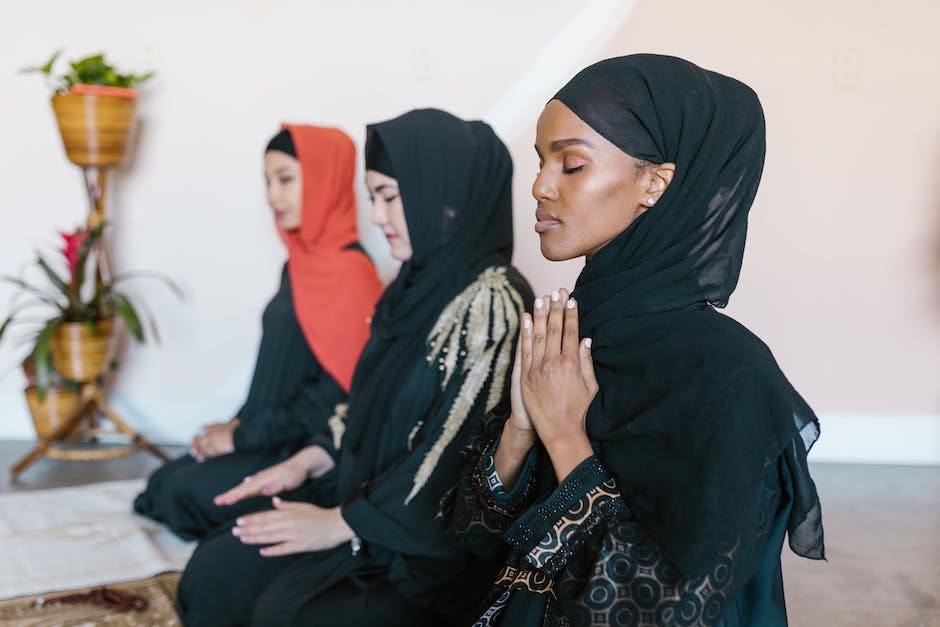
The future of eco-friendly and sustainable Islamic fashion
The future of eco-friendly and sustainable Islamic fashion is bright, with an increasing number of brands and designers adopting sustainable practices and materials. Going forward, we can expect to see even greater innovation and creativity in sustainable Muslim fashion, spurred by the demand for more responsible and ethical clothing options.
Many experts predict that the popularity of sustainable fashion will continue to grow in the coming years, as more consumers become aware of the environmental impact of the fashion industry and seek out more sustainable options. This is particularly true in the Muslim community, where the principles of sustainability and ethical responsibility are closely aligned with Islamic teachings.
As the demand for sustainable Muslim fashion grows, we can also expect to see greater collaboration and cooperation among designers, brands, and influencers, all working towards a common goal of creating a more sustainable and ethical fashion industry.
The future of eco-friendly and sustainable Islamic fashion is one that promotes creativity, innovation, and responsibility, and offers Muslim consumers the opportunity to make fashion choices that align with their values and beliefs.


